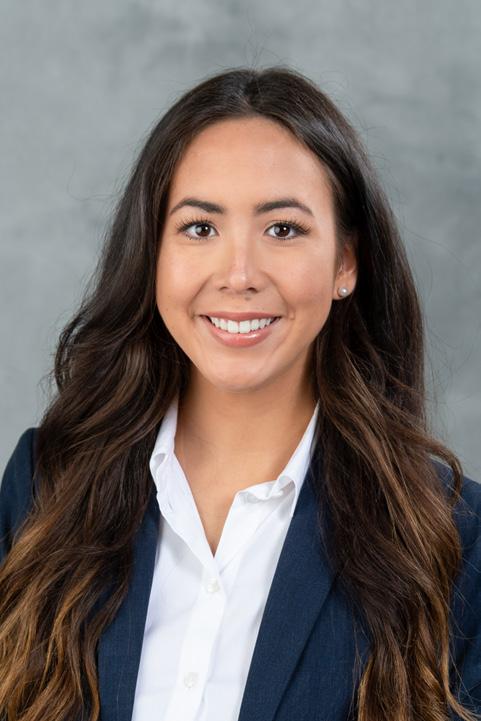
10 minute read
Campbell Medicine Spotlight: Medical Student Summer Research Scholars
The Medical Student Summer Research Scholars (MSSRS) Program is a summer research opportunity open to rising MS-II students only. The project period is 7 weeks during the summer, and students are expected to devote at least 6 full weeks to the project. Students attend weekly work-in-progress sessions and provide the opportunity for MSSRS participants to present their work to student peers. A final report is presented in the form of a poster or oral presentation at a local, regional, or national meeting. The Interprofessional Education Symposium held each spring at Campbell University is an opportunity to present, and all MSSRS participants are encouraged to present a poster at the event.
Natasha Dziarnowski
Advertisement
Hometown: Haymarket, VA

Natasha Dziarnowski, MS-II
Undergraduate Degree(s):
B.S. in Biological Sciences with a Minor in Spanish, Virginia Tech
Research Project:
“Evaluation of Frailty Scale Usage and Compliance in the Hospital Setting: A Performance Improvement Approach” PI/Mentor: Sarah McIntyre, RN; Trauma Program Manager – WakeMed Health and Hospitals, Raleigh, NC
What were the benefits of participating in the MSSRS program?
I wanted to participate in a research project that had application to a wide variety of medical practice, and frailty impacts a huge subset of the patient population. Hopefully, by evaluating the implementation of a clinical frailty scale the project will provide a helpful clinical tool in assessing the best course of care for these patients. I learned valuable skills in data collection and literature review, as well as learning more about how frailty can impact multiple facets of a patient’s life.
What advice would you share with future medical students?
My advice to incoming medical students, or students who wish to pursue medicine, is to have your reason ‘why’. Medicine is a life-long dedication to learning, so at the end of the day, among all of the hustle and bustle, be sure to remember your ‘why’ and enjoy the learning itself–it’s what will help you serve your patients in the future!
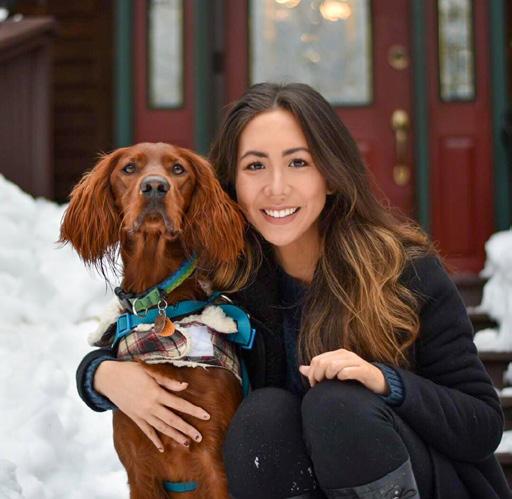
Natasha Dziarnowski
Stephanie Everest
Hometown: Melbourne Beach, Florida.

Stephanie Everest, MS-II
Undergraduate Degree(s):
B.S. in Applied Physiology and Kinesiology with a Specialization in Exercise Physiology, University of Florida (Go Gators!)
Research Project:
This summer, I was fortunate to work with my research mentor, Dr. Nicholas Pennings, on a project titled, “Evaluating the Usefulness of Fasting Insulin and Fasting Glucose When Screening for the Risk of Developing Type 2 Diabetes in Five Years” which investigated current diabetes screening methods and the use of fasting serum insulin levels for early disease detection and prevention. The research team also included Dr. Matthew Peterson and, my classmate, Lauren Huff.
What were the benefits of participating in the MSSRS Program?
Participation in the Summer Scholars Program gave me the opportunity to be involved in every stage of the research process – from reviewing previous diabetes research and formulating a research design to composing a research paper and poster.
What advice would you share with first-year medical students?
My biggest advice to current MS-1 students is to do your best and trust the process. Focus on what you can accomplish in a day and have faith that you will get to where you are meant to be. In the meantime, surround yourself with genuine people who support you and encourage you. Medical school is full of amazing moments and personal growth, but on the difficult days, I’ve found it’s the support system that you’ve built that keeps you grounded.
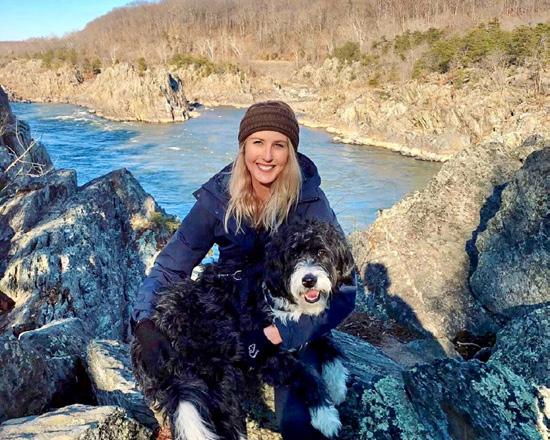
Stephanie Everest
Ricardo Caldas
Hometown: Pembroke Pines, Florida

Ricardo Caldas, MS-II
Life Before Medical School:
My family and I moved from Blumenau, Brazil to the U.S. when I was four, and I grew up in Pembroke Pines, Florida – the place I consider to be my hometown. After high school, I completed my EMT-Firefighter training with the Coral Springs Fire Academy in 2007. Then, I earned my paramedic license in 2009.
In the years that followed, my love for working with patients intensified, and I decided to pursue a career in medicine. In 2016, I earned my BS in Biological Sciences from Florida Atlantic University, where I also performed one year of benchtop research centered on assessing the neuronal impacts of brevetoxicosis. Additionally, I served as a biology TA during my undergrad while concurrently working as a paramedic for the North Broward Hospital District.
After leaving Florida, I graduated with my MS in Biotechnology from Johns Hopkins University in 2019, just prior to matriculating at CUSOM. Regardless of the field of medicine that I pursue, clinical research will remain my lifelong companion in evidence-based practice.
What is your research project?
With respect to the Summer Scholars program, I was matched to the trauma research division at WakeMed, primarily working under Dr. Mary Bryant and Dr. Jaclyn Tremont. I am a co-investigator in a study centered on evaluating the predictive and prognostic merits of early in-hospital end-tidal capnography measurements on trauma patient outcomes. My primary responsibility involved collecting and screening EMS and ER patient data from WakeMed’s EMR system –both at the hospital and remotely.
Project title: Does ETCO2 predict outcomes in all trauma populations?
Principle Investigator: Scott M. Moore, MD
Co-Investigators: Jaclyn Portelli Tremont, MD; Mary K. Bryant, MD, MSCR; Ricardo A. Caldas, MS, EMT-P
What have you learned from this experience?
The research I performed on behalf of WakeMed Health was, and continues to be, a rewarding experience. I was taught how to navigate hospital-based studies and learned the nuances surrounding IRBs and the data collection process. It also allowed me to build a rapport with some of WakeMed’s physician and nursing staff. I also learned how to better navigate an EMR platform that is widely used throughout various hospital systems. Although my Summer Scholars contract has ended, I was given the opportunity to remain with WakeMed as a member of the research team for the rest of the year. To this day, I am still remotely collecting data for the third phase of our study as I make my way through my second year at CUSOM.
What are your extracurricular activities?
I serve as the Research Chair of our CUSOM SGA. I currently live in Garner with my two little boys, Leo and Tristan, and my wife, Vanessa. When I’m not studying, I enjoy cooking with my kids, doing yardwork, traveling, and exercising.
What advice for MS-I’s would you like to share?
To all of our aspiring MS-I researchers, I highly recommend that you consider applying to CUSOM’s Summer Scholars program. The program offers various platforms from which to gain experience in research –from on-site laboratory to hospital-based projects.
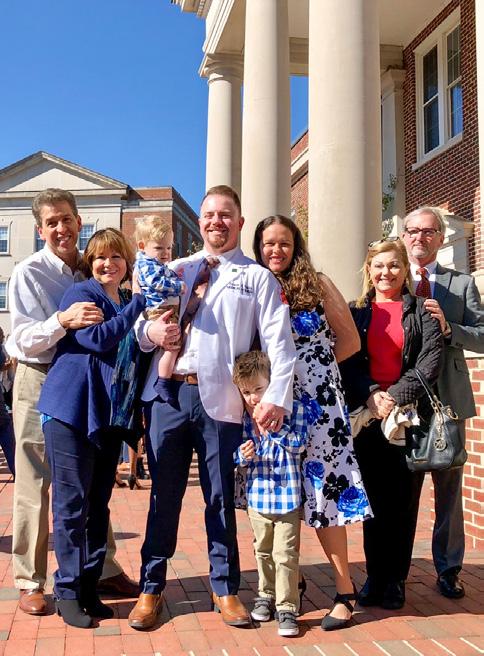
Student Doctor Caldas and his family at White Coat Ceremony 2019.
Tommy O’Neil
Hometown: Martinsville, VA

Tommy O’Neil, MS-II
Undergraduate
Degree(s): Bachelor of Science in Biology, James Madison University
What was your project?
I worked with Dr. Pascal Udekwu at WakeMed in the trauma surgery department on a project titled “Current Management of Traumatic Abdominal Wall Hernias”. My role in the project was reviewing the literature and working through patient charts to collect data on how traumatic abdominal hernias are managed as well as patient outcomes. I’m interested in possibly going into surgery and this experience was a great way for me to start looking into the field.
What are the strengths of the MSSRS Program?
The Summer Scholars program is great because you get to work closely with people who have a lot of experience in health care. All MS-I’s, find something you’ll enjoy over the summer and use the time to gain valuable experience. Also, make sure you have fun and enjoy your break!
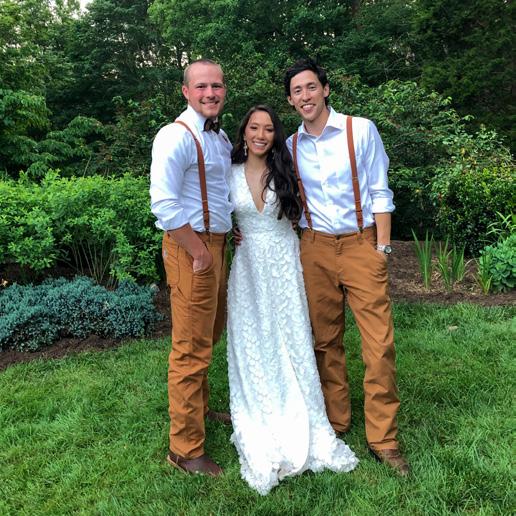
Tommy with his sister Lauren and her husband Josh at their wedding this summer.
Alli Howell
Hometown: Cherryville, NC

Alli Howell, MS-II
Undergraduate and Other
Degrees: Bachelor of Science in Biology, UNC Charlotte; Master of Science in Biomedical Sciences, Campbell University
About me:
When I’m not studying, I love to spend time with my two rescue pups, MJ and Nyla Grey. You can usually find me hanging out in my backyard with them. I’m a bargain shopper, food enthusiast, and I love to buy new plants almost every time I go to the grocery store. I’m also from a rural community in the western part of North Carolina, so I feel right at home here at CUSOM!
MSSRS Research Project:
“Transthoracic Vagotomy Treatment Method for Marginal Ulcers in Gastric Bypass Patients”
PI: Paul Enochs MD, Wake Med Bariatric Surgery
Alden Parsons MD, FACS, Wake Med Cardiovascular and Thoracic Surgery, Chair Department of Surgery Wake Med Cary
This study is a retrospective chart review, and I was involved in data extraction from patient medical records. I was responsible for navigating through patient charts and collecting information including patient demographics and additional variables regarding their previous surgical histories. We examined the different risk factors and common variables among patients who developed marginal ulcers following their respective gastric bypass procedures. These ulcers impose severe health consequences and may be refractory to conservative therapy requiring an additional measure of a transthoracic vagotomy (TTV). This procedure involves a robotic-assisted cut of the vagus nerves bilaterally, which in return reduces stimulation to the GI tract to mitigate the amount of acid being produced in the stomach.
Throughout this experience, I became more appreciative of research and the amount of time and effort it requires. Although I worked with a smaller sample size, it may have taken me an entire day to navigate through one or two patient charts and data extraction was a very tedious process. I was also reminded that we should not take our own health for granted; this project was a gentle reminder I hope to carry with me to help improve the quality of life for my future patients.
What advice would you share with current first-year medical students?
To current MS1 students, it’s going to be hard. Please remember (I also have to remind myself of this) that you are not perfect and no one is. It’s okay to miss exam questions, it’s okay to talk yourself through each step in lab, it’s okay to watch your OSCE and see the errors you have made. Now’s the time to make these little mistakes and ask questions so you can do better in the future. It’s not about being perfect, it’s a process of improving yourself and staying healthy during this time. Focus on what is important to you and the rest will sort itself out.
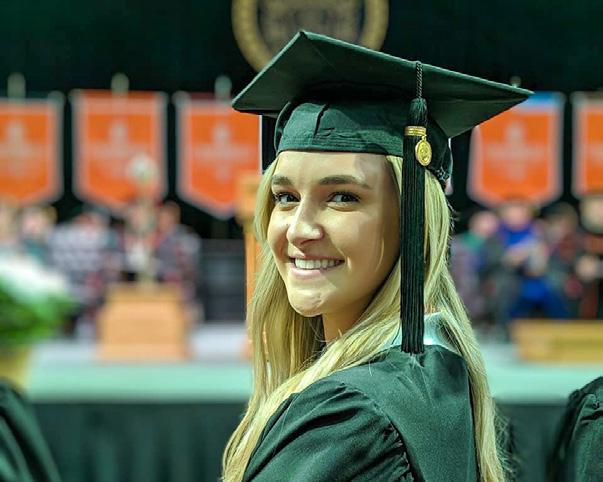
Alli Howell
Megyn Christensen
Hometown: Swanton, Ohio
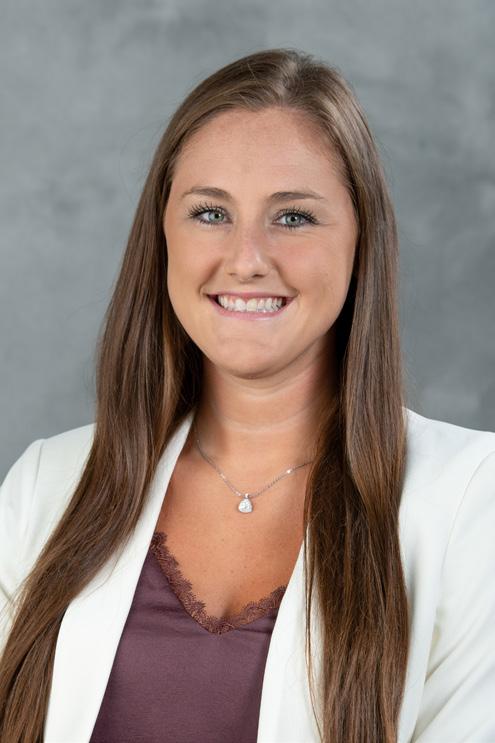
Megyn Christensen, MS-II
Undergraduate Degree(s):
Bachelor of Science in Biology, Lake Erie College, Painesville, OH
MSSR Research Project:
“Outcomes After Acute Care Surgery and Trauma Care in Incarcerated Individuals: A Prospective Observational Trial”
Mentor: Mary K Bryant, MD – UNC PGY5 General Surgery Resident, Trauma Research Resident – WakeMed Health & Hospitals, Raleigh, NC
I reviewed 576 patients’ charts to see if they were eligible to be included in this study. After determining that 132 were eligible, I then identified data points for: demographics, comorbid conditions, pre-hospital information, incarceration information, admissions, diagnoses, interventions, discharges, and complications. These data points were then entered into a data collection system called REDCap.
Coming into medical school, I had no research experience. So, the main reason I participated in Summer Scholars was to gain my first experience with research. This opportunity allowed me to gain insight on how research is developed from IRB requirements, to learning how to navigate through an electronic medical record registry, to enhancing my skills with Excel, and just being able to pull the appropriate data from patients’ charts.
Advice to MS-I:
There is so much material to learn each day, and sometimes you can’t do it alone. It is 100% acceptable to reach out to faculty, MS-IIs, or even a tutor. No one way is the right way. Some people just read the PowerPoints, others make notes/flashcards, some use ANKI, and others use a variety of different sources (Sketchy, Pathoma, BNB). Do what you are comfortable with and go from there. If what you are doing right now isn’t working that great, do a trial and error of other methods. Each course, each professor, and each block may require you to alter your studying habits.








